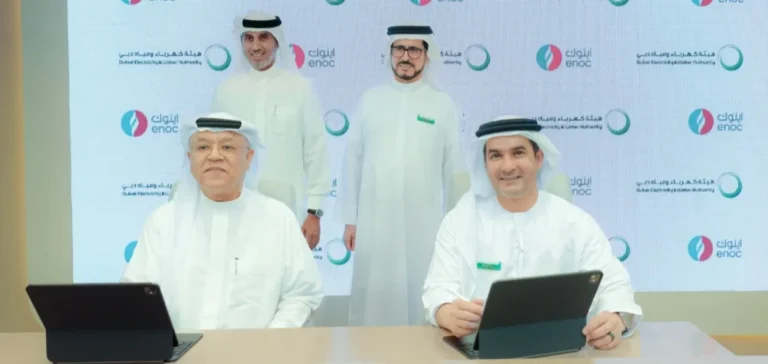The Dubai Electricity and Water Authority (DEWA) has signed several strategic agreements aimed at expanding the fast-charging network for electric vehicles (EVs) in the emirate. These contracts form part of the EV Green Charger initiative, launched in 2014, and involve new charging station deployments in partnership with public and private entities.
Collaboration with ENOC to equip fuel stations
The first agreement, signed with Emirates National Oil Company (ENOC), provides for the installation of fast-charging units at the company’s network of service stations across Dubai. The initiative seeks to support the local growth of the electric vehicle market and improve accessibility to charging infrastructure for private drivers.
208 charging points for Dubai Taxi’s fleet
A second long-term contract was signed between DEWA and Dubai Taxi Company (DTC). The agreement includes the deployment of 208 ultra-fast EV charging stations for DTC’s fleet. These units will be installed across various strategic locations to support the company’s fleet electrification roadmap.
Expanded public network with Parkin
The third partnership connects DEWA with Parkin Company, a parking infrastructure operator in Dubai. The first phase of this agreement includes the installation of 100 EV chargers in key public locations such as shopping malls, residential areas, leisure destinations and high-traffic public sites. A broader rollout is expected to follow.
More than 1,500 existing charging points across Dubai
DEWA currently operates over 1,500 charging points across the emirate through its EV Green Charger initiative. The expansion through these partnerships aligns with a broader strategy to consolidate infrastructure for EV adoption across sectors, without service disruptions or over-reliance on a single operator.






















